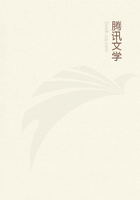
第1章 ITS ORIGIN AND SOURCES.(1)
The eminent man who founded the Whewell Professorship of InternationalLaw laid an earnest and express injunction on the occupant of this chairthat he should make it his aimin all parts of his treatment of the subject,to lay down such rules and suggest such measures as might tend to diminishthe evils of war and finally to extinguish war among nations.
These words of DrWhewellwhich occur in his vill and in the statuteregulating his professorshipundoubtedly contain both a condemnation anda directionInternational Law in its earlier stages was developed by a methodof treatment which has been applied to many important subjects of thoughtwhen their growth has reached the point at which they are included in booksto theologyto moralsand evenin some casesto positive private law.
Writers of authority who have gained the ear of the learned and professionalclasses follow one another in a stringeach commenting on his predecessor,and correctingadding toor devising new applications forthe propositionshe has laid downFor a considerable time International Lawas the wordsare commonly understoodhad to be exclusively collected from the dicta ofthese authoritative writerswhohoweverdiffered from one another materiallyin their qualities and defectsAt the head and at the foot of the list twonames are often conventionally placedfirst that of Grotiuswho was bornin 1583and died in 1645and last that of Vattelwho was born in 1714and died in 1767Of both these writers it may be confidently asserted thatthe rules and propositions which they laid down did tend to diminish theevils of war and may possibly help to extinguish some day war among nations.
But of the residue of this class of publicistsit must be confessed thatsome were superficialsome learned and pedanticsome were wanting in clearnessof thought and expressionsome were little sensitive to the modificationsof moral judgment produced by growing humanityand some were simply reactionary.
As these lectures proceed I may be able to point out to which classandfor what reasonsthe writer immediately before us belongs.
Meantime I may be allowed to pause and say that at first sight it seemshopeless to discharge in our day the responsibility which DrWhewell haslaid on his professorWhat teacher of Lawpublic or Privateconsideringwhat we see around uscan hope to suggest the means of controllingandstill less of weakening and destroyingthe prodigious forces which seemnow to make for warThe facts and the figures alike appear to point to anenormous growth of these forces in volume and strengthThe middle year ofthis century was the thirty-fifth of the long peace which began in 181--a peace which was not quite unbrokenfor there were some intervals of pettylocal warbut which was as long as any which existed since Modern Europebeganand a peace which was fruitful in every sort of remarkable result.
That generation may be said to have had a dream of peaceIt looked forwardto a time whenin the words of the great poet who was then beginning toexercise influence over it'The war drum should beat no longer and the battleflag should be furled.And in 185an event occurred which has since thenbeen somewhat vulgarized by repetitionthe establishment of the first ofthe Exhibitions of Art and IndustryIt seriously added to the belief thatwars had ceasedstrife in arms was to be superseded by competition in thepeaceful artscontroversy was to be conducted by literary agencies and nolonger by armsAs a poet and prose-writer then still living put it'CaptainPen had vanquished Captain Sword.'
But the buildings of this Temple of Peace had hardly been removed whenwar broke out againmore terrible than everFirst came the Crimean Warin which this country was a principal belligerentthen followed the frightfulstruggle of the Indian Mutiny in which England was solely concernedShortlyafterwards the Government of the new French Empire attacked the Governmentsestablished in Italy by the Treaty of Viennaand soon the whole of the Italianarrangements set up by that Treaty were destroyedBefore longthe UnitedStates of Americasupposed to be preserved from war by a sort of homelycommon sensewere torn asunder by the war of secessionwhichproportionatelyto its continuancewas the costliest and bloodiest of warsIn no long timethe German arrangements which were established at Vienna fell in pieces througha quarrel between the chief German powersAlmost the other day there camethe French and German war and the struggle between the Russians and the Turks-contests which unveiled the bases of quarrels of which we have not seenthe endnamelythe historical rivalry between the French and Germansandthe most hopeless of all the problems which the civilised world has to solve,the contest provoked by the inevitable break-up of the Turkish Empire.